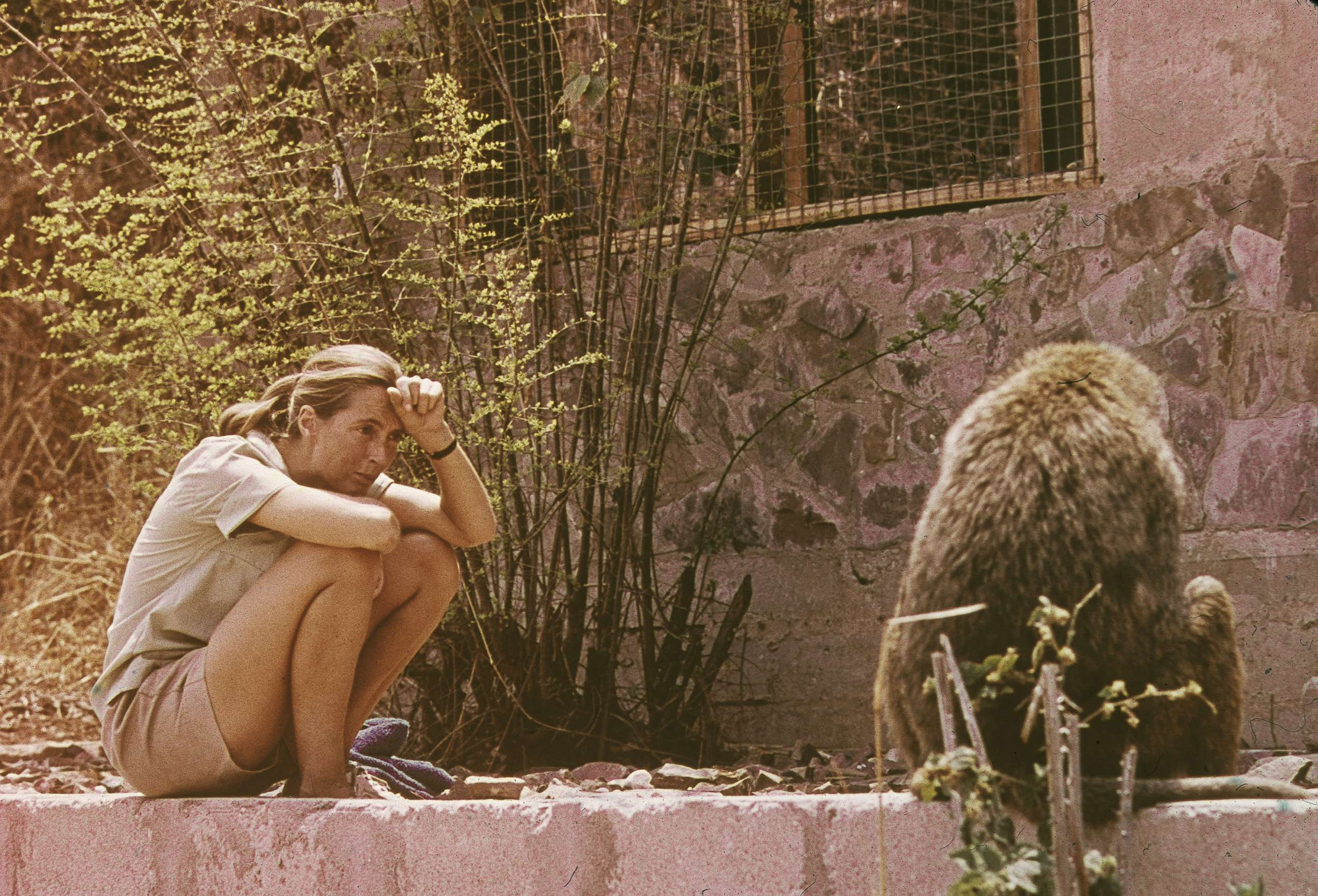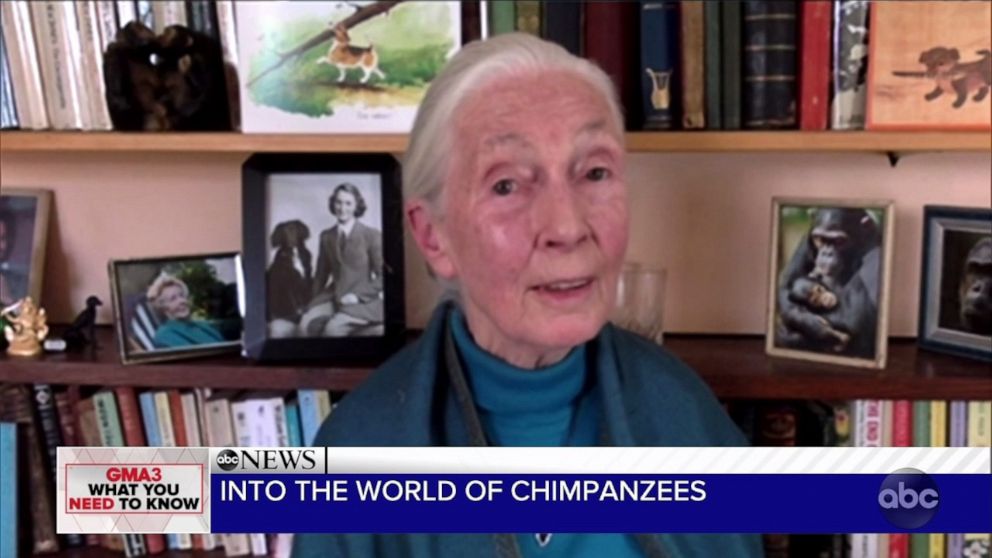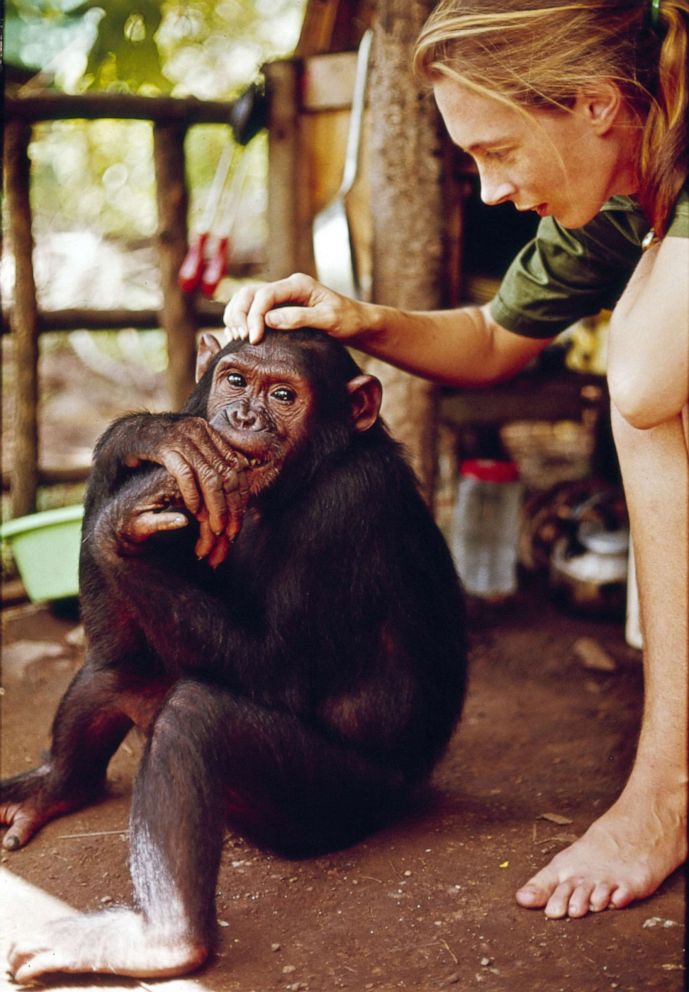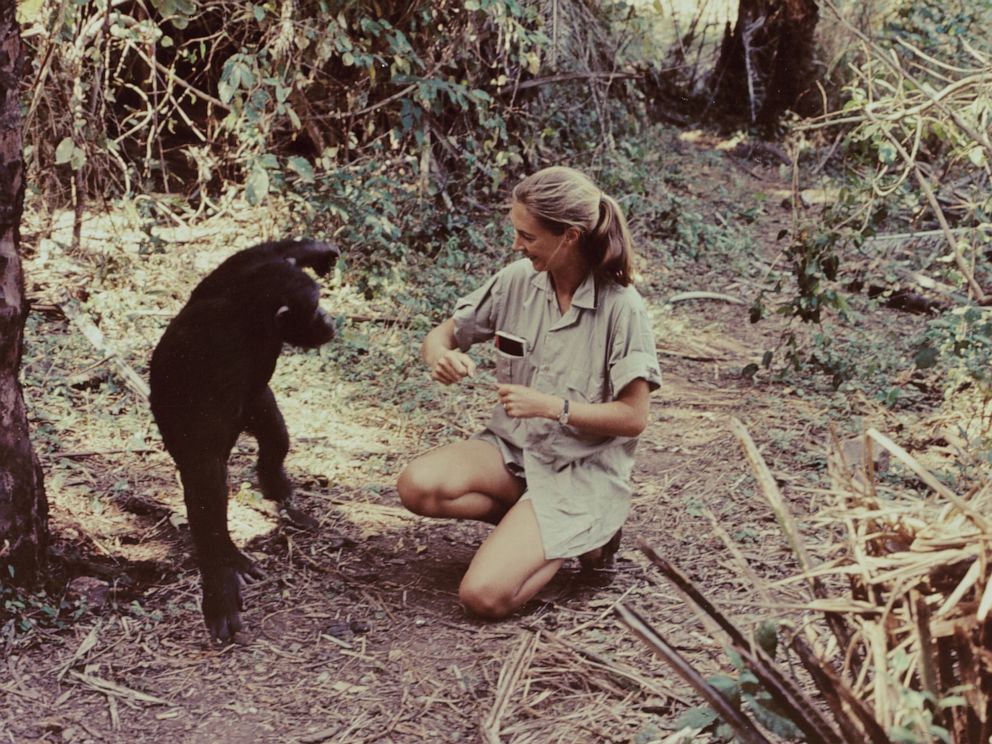Jane Goodall on 60 years of studying chimpanzees in Africa: 'We're still learning new things'
"This is what I was meant to do," she said.
Dr. Jane Goodall was only 26 when she traveled from England to what is now Tanzania to learn about wild chimpanzees in July 1960. The world knew very little about the species at the time.
Goodall’s groundbreaking research at Gombe Stream National Park has now spanned six decades. Her research has transformed the way we see human relationships with chimpanzees and has showed us an entirely new method for wildlife research.
“I was born loving animals. My dream of going to Africa and living with them, the wild animals, began when I read 'Dr. Doolittle' and 'Tarzan' when I was 10 [years old],” Goodall, 86, told ABC News.
She said first arriving at Gombe was a “big challenge.”
“The terrain is very steep and mountainous… There were buffalo and leopards in those days,” she said. “But it was what I always dreamed of -- it didn’t really teach me anything except, yes, this is what I was meant to do.”

Goodall’s research was revolutionary because she integrated herself within the wild chimpanzee communities to learn about their social and familial interactions. She named each animal and formed close bonds with them, learning how very similar they were to us.
“Their behavior, with their gestures, kissing, embracing, holding hands, patting on the back,” she said of what she learned about chimpanzees in her research. “In fact, they can use and make tools, the fact they can be violent and brutal and can have a kind of war -- but [they are] also loving and altruistic.”

Goodall said even after all this time, there is still so much to learn from them.
“The amazing thing after 60 years studying the same groups of chimpanzees in Gombe National Park [is] we're still learning new things,” she said. “It's like if you're watching a group of people. New ideas crop up. New behaviors start. That means an evolving culture.”

In addition to her research, she has been a tireless advocate for conservation and animal rights and has been an outspoken climate change activist. She says the coronavirus pandemic has shown us how humans are affecting our global ecosystem.
“We brought this pandemic to a large extent on ourselves -- we have disrespected the natural world, we disrespected animals, and we've been cutting down forests. Animals are being driven in closer contact with people. Animals are being hunted killed and eaten. They're being trafficked,” she said.
“This creates a fantastic environment for a virus or a bacteria … to jump from an animal to a person,” she added, saying that “intensive animal farming, our factory farms," create situations where animal-to-human disease can be transmitted.
She says we’ll make it through COVID-19 as we did with the Black Death and Spanish Flu. But climate change, another result of humans “disrespecting” the earth, will be a tougher opponent, she said.
“If we don't get together soon and start respecting the natural world and realizing we're a part of it … then it's going to be a very, very, very bleak look for our great-great-grandchildren,” she said.

“Big business is very reluctant to change the way they operate and so my fear is, when this pandemic is over, there will be an absolutely rush to get back to business as usual,” Goodall added. “A crazy idea that we can have unlimited global economic development on a planet with finite natural resources and a growing human population is crazy. … We've just got to think of a new way to relating to the natural world but come up with a new green economy for the sake of our as yet unborn children.”
Dr. Jane Goodall, DBE, is the founder of the Jane Goodall Institute & UN Messenger of Peace. For more info, please visit: janegoodall.org
*Dr. Goodall and the Jane Goodall Institute do not endorse interfering with wild chimpanzees. The imagery in this article show a historical context.




